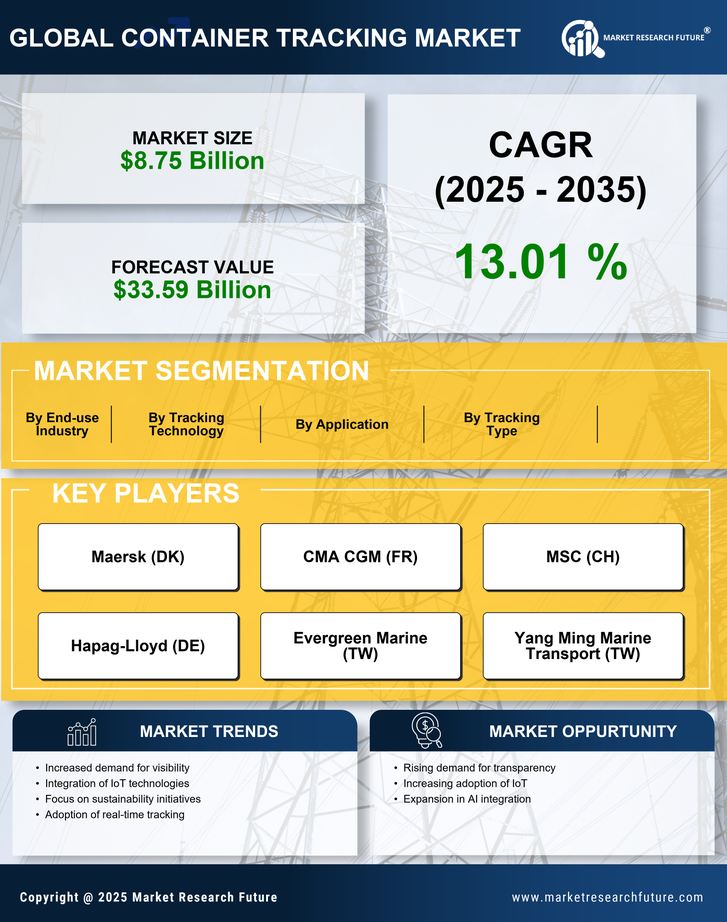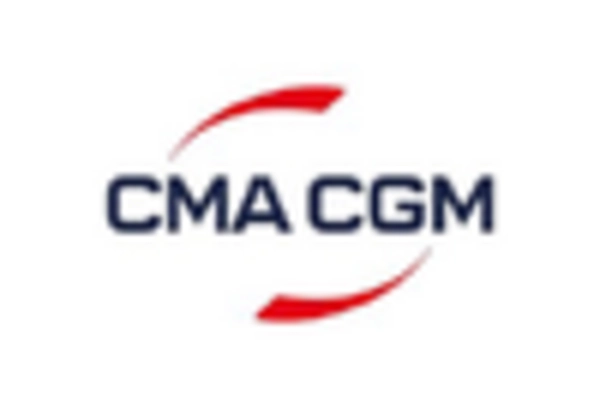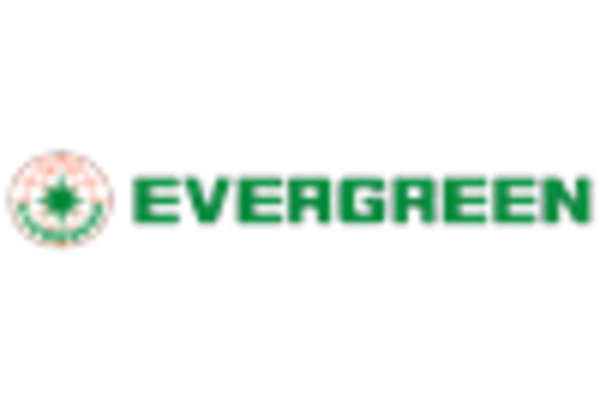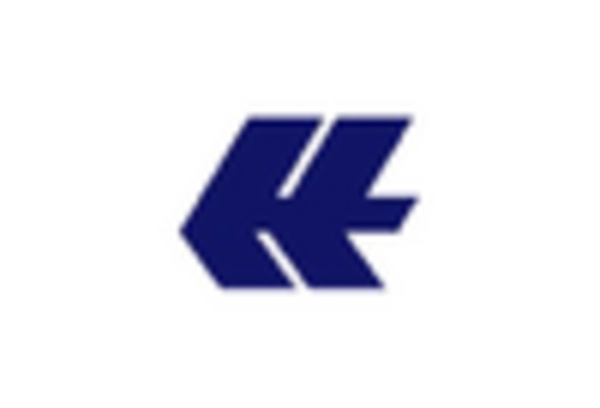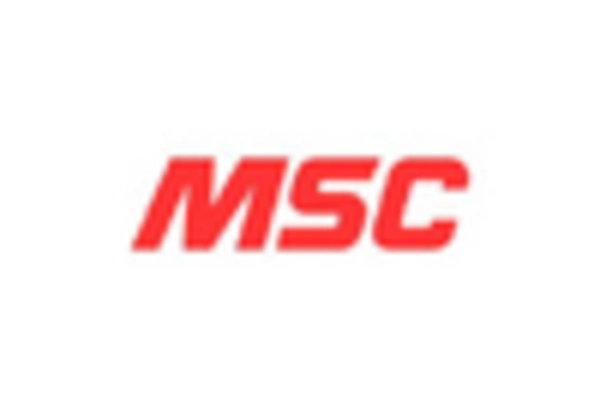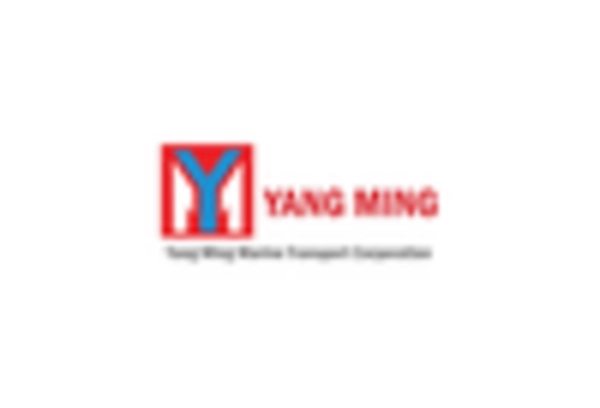Focus on Supply Chain Transparency
A growing emphasis on supply chain transparency is driving changes within the Container Tracking Market. Consumers and businesses alike are increasingly demanding visibility into the origins and journey of their products. This trend is particularly pronounced in industries such as food and pharmaceuticals, where traceability is critical for safety and compliance. Companies are responding by investing in tracking solutions that provide detailed information about container movements and handling processes. The Container Tracking Market is thus witnessing a shift towards systems that not only track location but also offer insights into the entire supply chain. This focus on transparency is likely to enhance consumer trust and loyalty, ultimately influencing purchasing decisions and shaping the future of the market.
Regulatory Compliance and Security
Regulatory compliance and security concerns significantly influence the Container Tracking Market. Governments and international organizations are increasingly implementing stringent regulations to ensure the safety and security of cargo. These regulations necessitate the adoption of advanced tracking systems that can provide detailed information about container movements and conditions. For instance, compliance with the International Maritime Organization's regulations requires shipping companies to maintain accurate records of container locations. This regulatory landscape drives investment in tracking technologies, as companies strive to avoid penalties and enhance their operational integrity. The Container Tracking Market is thus witnessing a shift towards solutions that not only meet compliance requirements but also enhance overall security protocols, ensuring that cargo is protected throughout its journey.
Growing E-commerce and Global Trade
The Container Tracking Market is significantly impacted by the growth of e-commerce and global trade. As online shopping continues to expand, the demand for efficient logistics and tracking solutions becomes paramount. E-commerce companies require precise tracking capabilities to provide customers with accurate delivery information, thereby enhancing the overall shopping experience. Additionally, the increase in global trade activities necessitates robust tracking systems to manage the flow of goods across borders. Recent statistics indicate that e-commerce sales are expected to reach trillions of dollars, further fueling the need for effective container tracking solutions. This growth presents a substantial opportunity for the Container Tracking Market, as businesses seek to implement systems that can accommodate the rising volume of shipments and ensure timely deliveries.
Rising Demand for Real-Time Tracking
The Container Tracking Market experiences a notable surge in demand for real-time tracking solutions. As supply chains become increasingly complex, stakeholders require immediate visibility into container locations and conditions. This demand is driven by the need for enhanced operational efficiency and reduced delays. According to recent data, the market for real-time tracking solutions is projected to grow at a compound annual growth rate of approximately 15% over the next five years. This growth reflects a broader trend within the Container Tracking Market, where businesses seek to leverage technology to optimize logistics and improve customer satisfaction. The integration of advanced tracking technologies, such as GPS and RFID, plays a crucial role in meeting this demand, enabling companies to monitor their assets with unprecedented accuracy.
Technological Advancements in Tracking Solutions
Technological advancements are reshaping the Container Tracking Market, introducing innovative solutions that enhance tracking capabilities. The emergence of Internet of Things (IoT) devices, artificial intelligence, and blockchain technology is revolutionizing how containers are monitored and managed. These technologies enable real-time data collection and analysis, providing stakeholders with actionable insights into their supply chains. For example, IoT sensors can monitor temperature and humidity levels within containers, ensuring that sensitive goods are transported under optimal conditions. The integration of these technologies is expected to drive market growth, with estimates suggesting that the adoption of advanced tracking solutions could increase by over 20% in the coming years. This trend highlights the Container Tracking Market's commitment to leveraging technology for improved efficiency and reliability.
